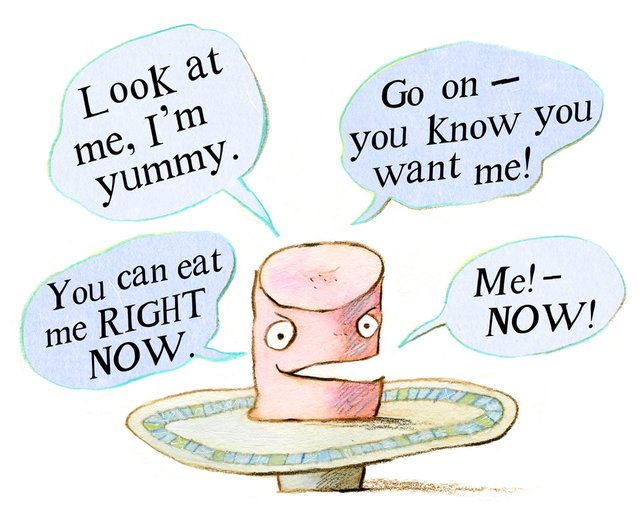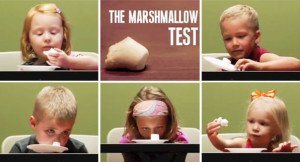The Marshmallow Test
The Marshmallow test has shown how thousands of children react to temptation. The initial goal was to see what techniques children use to delay gratification. The tests, led by Walter Mischel and his team at Stanford, were the gateway into the study of self control.
Delaying gratification is key in achieving long term goals. Paying down a home takes a lifetime, the ideal body takes years to sculpt, and your yearly resolution need sacrifice.
Nobel Laureate, Thomas Schelling, highlights a common situation we face when making decisions,
"How can we conceptualize the rational consumer who knows to eat a low calorie meal. Consumes whatever they like at dinner. Regrets their choice, and repeats the process in the morning."

The Marshmallow Test was a tool to measure how children go from resisting temptation to giving in. The experiment itself was simple. If a preschooler could wait 15 minutes for the researcher to come back into the room the preschooler would get a second marshmallow. The test room was empty aside from rewards. The children tested in one of four situations.
- The immediate and delayed reward were available
- The delayed reward was available
- The immediate reward was available
- Neither reward was available
The immediate reward was a single mallow and the delayed was two.
This simple experiment was the beginning of 40 years of self-control research. Countless variations provoked subjects to feel more tempted or better controlled. Mischel named these two sides of our self, the "hot and cold systems".
The hot system was quick to react to stimuli and is considered to be the driver behind impulsive behavior. The cold system was logical and thorough. Thinking through outcomes and seeking the best long term results.
.
The test was never designed to be a predictor of success, but that's exactly what it become. In Mischels own words,
“My students and I designed the procedure not to test children to see how well they did, but rather to examine what enabled them to delay gratification if and when they wanted.”
That “if” is crucial. All the techniques and knowledge can't help if you're uninterested in the outcome.
After the initial experiment, and several years later, Mischel and his team were curious how those children who delayed had grown. As teenagers they had better self-control in frustrating situations and higher grades. In adulthood, they reported a lower weight, higher education, and an ease with pursuing long-term goals. Skills their peers lacked.
The Marshmallow test affirms how crucial self-discipline is to success and insight into achieving our own goals.

Upvoted
Hi! This post has a Flesch-Kincaid grade level of 8.5 and reading ease of 60%. This puts the writing level on par with Leo Tolstoy and David Foster Wallace.